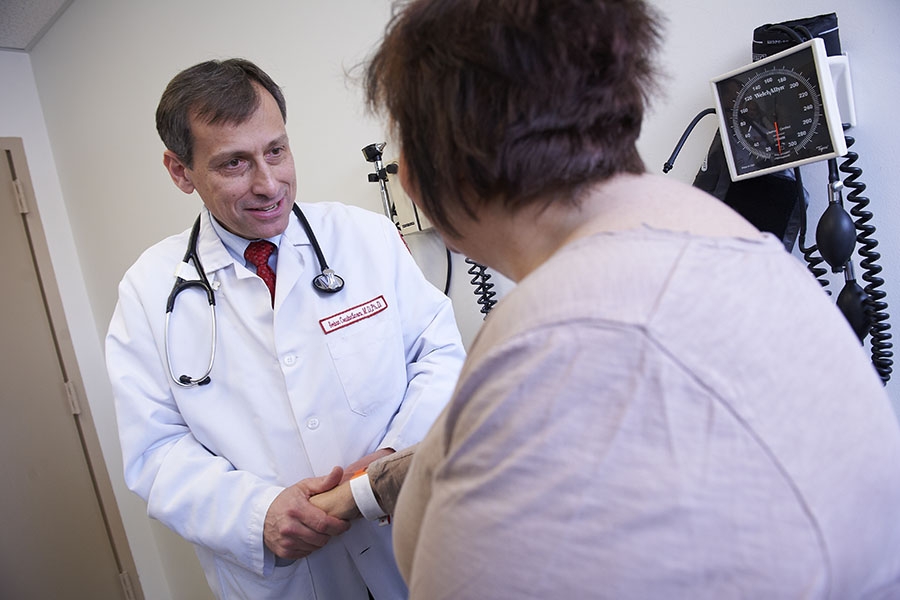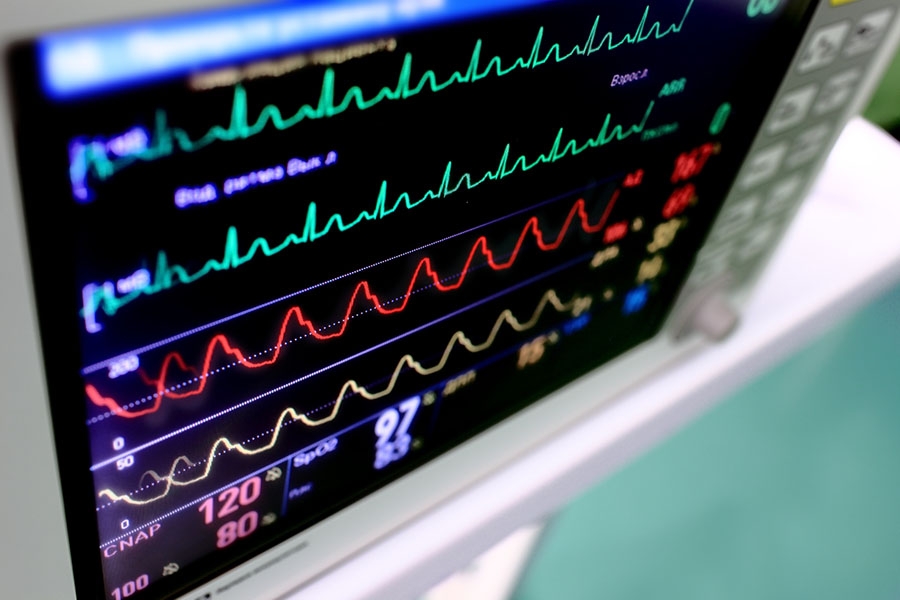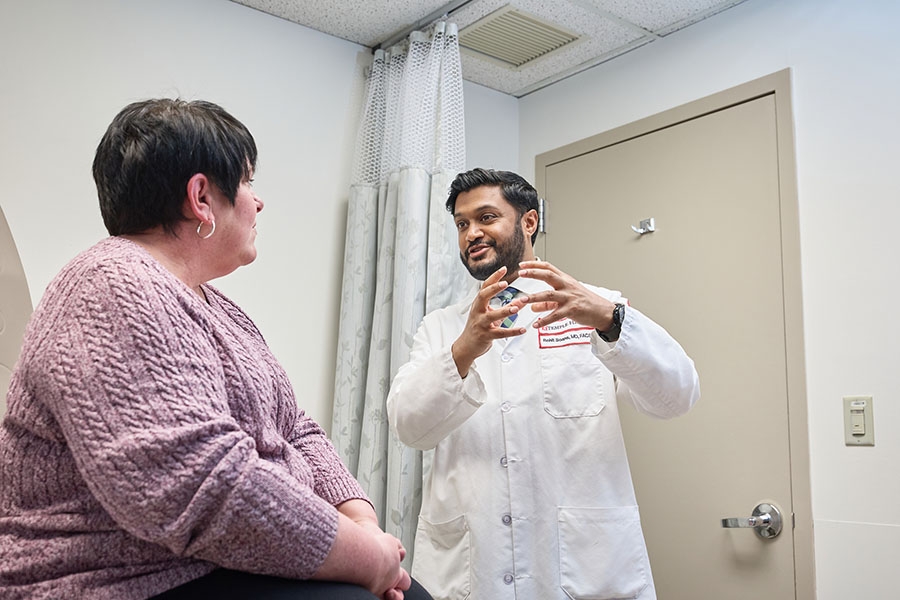As a neurologist at Temple Health, I tend to get a lot of questions about headaches. Naturally, some of the most common questions are what causes headaches and are there ways to alleviate them. It’s probably not a coincidence if you’re noticing more headaches recently. Many types of headaches are triggered by stress.
During a universally stressful time such as the COVID-19 pandemic, it’s especially important to keep yourself healthy and reduce stressors as much as possible. Doing so may also relieve your headaches.
Here, I review some of the most common headache questions and provide some advice on what you can do to prevent headaches from occurring, even during these challenging times.
Jump to:
- What's the difference between a headache and a migraine?
- Why am I experiencing more headaches than usual?
- What are food triggers that could be causing my headaches?
- What types of things can I do to help alleviate my headaches?
- Should I take over-the-counter medication?
- When should I be concerned about a headache?
What’s the difference between a headache and a migraine?
There are actually many types of headaches, but two of the most common are tension headaches and migraine headaches.
Tension Headaches
Tension headaches tend to come on as a result of physical, emotional or mental stress. Some examples include stress from working on an intense deadline, from lack of sleep or from ongoing anxiety.
The pain from tension headaches is usually mild to moderate, and it feels like someone is squeezing or putting pressure on your head, face or neck. Most of the time, the pain is felt on both sides. Tension headaches usually resolve when the stress resolves, but certain types of tension headaches can occur consistently over weeks or months.
Migraine Headaches
Migraine headaches are associated with throbbing or pulsing pain, usually on one side of the head. Along with the pain, you may be sensitive to light, sounds or odors, or may feel nauseous and vomit.
As with tension headaches, stress can play a role, as well as things like lack of sleep, hormonal changes, changes in the weather or low blood sugar. Migraine can resolve on its own with symptom management, but if you have repeated episodes, you may need to seek help to understand what’s causing your migraines.
Why am I experiencing more headaches than usual?
As a nation, we experience a huge amount of stress every day, whether it’s from work, carting our kids around or eating unhealthy foods. Everyday stress can certainly trigger headaches.
If you do start experiencing chronic headaches, you may want to take a step back and evaluate some of your behaviors to see where you can eliminate stressors.
You may also experience headaches more often during or shortly after unusual times of stress. More recently, for example, our collective experience of the COVID-19 pandemic has put everyone on edge. Worrying about our families, social distancing from work and our regular routines, and just listening to the news can leave us feeling anxious, upset and out of control. We don’t sleep as well and there are moments when we tend to get down. All of these things lead to behaviors that can trigger a headache.
When you do not sleep well, you can experience headaches the following day. Also, drinking alcohol and too much caffeine and smoking can lead to worse headaches.
Sometimes, when you finally are done with a stressful event, like taking a test or completing a hard workweek, you may find that when you try to relax, you experience a headache. This is called the “stress let-down” response, and it happens because our cortisol, or stress hormone, keeps our bodies up and running when we really need to rest. Headaches happen when that stress hormone finally releases.
What are food triggers that could be causing my headaches?
Many patients report that migraine headaches are triggered by food or food ingredients. These include:
- Alcohol
- Aspartame, a sugar substitute
- Caffeine (more often, caffeine withdrawal)
- Wine
- Cured meats
- Fermented foods
- MSG (monosodium glutamate), a food additive that enhances the flavor
- Some types of cheese
If you start experiencing frequent migraines, make note of what you’re eating on those days. It may be helpful to keep a food diary.
If you get migraines more often when you eat or drink a specific food, try eliminating it from your diet for a couple of weeks. It’s a process of trial and error, but if food is the culprit of your pain, replacing that food with an alternative or abstaining from it altogether may help.
What types of things can I do to help alleviate my headaches?
For both tension and migraine headaches, I usually tell patients to think about some of the triggers that may be causing their pain. We can then work backward and make changes that help prevent or alleviate the pain.
Some prevention techniques you can try during social distancing (also known as physical distancing) include:
- Stay hydrated throughout the day and limit caffeine and alcohol intake.
- Practice good sleep hygiene.
- Use good posture when working from home.
- Try relaxation techniques, such as deep breathing, mindfulness practices or yoga.
- Adopt a regular workout routine.
Act like a scientist and track your behaviors. On the day your headache occurred, did you drink too little water? Did you eat a certain combination of foods? Was your sleep schedule interrupted? Looking for patterns then making small changes can often help you overcome your pain.
Should I take over-the-counter medication?
Taking over-the-counter remedies too often can in fact make headaches more likely to come back. If you’re finding this is happening to you, speak with your doctor.


